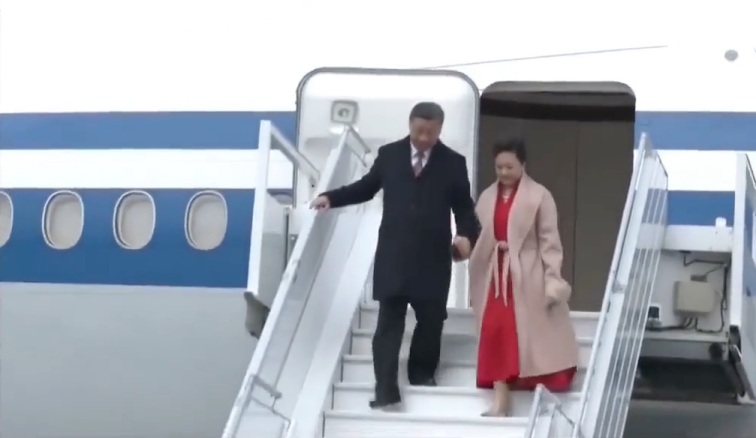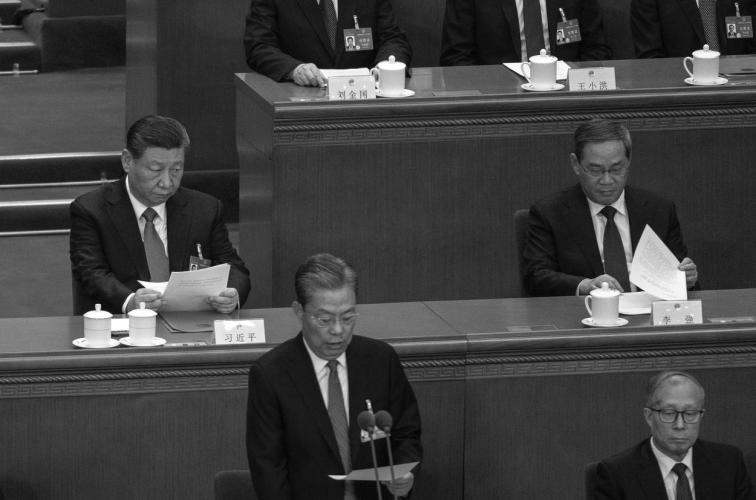Illustration of CCP hackers. (AI-generated image)
[People News] On April 30, Russia's news agency reported that the U.S. Embassy in Guatemala announced the results of a joint cybersecurity inspection conducted by the Guatemalan government and the U.S. Southern Command. The inspection revealed that the entire IT system of Guatemala's Ministry of Foreign Affairs had been hacked by actors originating from China (CCP).
The U.S. Embassy emphasised that the United States is committed to supporting Guatemala in facing global threats and enhancing digital infrastructure to promote regional prosperity. However, Guatemalan authorities have not yet made an official statement regarding the incident.
Located in a strategic position in Central America, Guatemala maintains a close “diplomatic” relationship with the Republic of China (Taiwan). Since establishing diplomatic ties on June 15, 1933, the two countries have cooperated in areas such as trade and investment, education and culture, industrial technology, infrastructure, military, and health. Guatemala is one of the few countries that have yet to establish diplomatic relations with the People’s Republic of China.
According to 2023 data, Guatemala has a population of about 17.9 million. By 2024, its GDP is projected to reach $111.3 billion, with a per capita GDP of $5,762.
So, why would CCP hackers target a country that hasn’t even established formal diplomatic relations with them? It likely has something to do with the newly elected President Bernardo Arévalo’s public expression of interest in establishing diplomatic ties with China.
Arévalo’s father, Juan José Arévalo, was the first democratically elected president in Guatemalan history. After the 1954 Guatemalan coup, the Arévalo family went into exile in South America. When young Bernardo was less than two years old, the family left Uruguay and lived in Venezuela, Mexico, and Chile during his childhood. At the age of 15, he returned to Guatemala for the first time and studied at a private Catholic school in Guatemala City. Bernardo later graduated with a bachelor’s degree in sociology from the Hebrew University of Jerusalem in Israel and earned a Ph.D. in philosophy and social anthropology from Utrecht University in the Netherlands.
In the 1980s, following the fall of Guatemala's military government, Bernardo returned to participate in politics, starting as an ordinary diplomat and eventually rising to the position of Deputy Foreign Minister. He later served as ambassador to Spain and held key roles in the United Nations and U.S. think tanks from 1999 onward. In 2017, he co-founded the political party Movimiento Semilla ("Seed Movement"). In late 2023, he was elected president and took office in January 2024 as Guatemala's 52nd president.
Bernardo describes himself as a “social democrat” who supports a republican democratic system, with policies leaning toward the centre-left. After taking office, he proposed expanding welfare for labourers and low-income groups and implementing universal healthcare. On international affairs, he strongly criticised Venezuela and Russia, removing Russian entities from Guatemalan nickel mining projects and outright rejecting Maduro. In the Russia-Ukraine conflict, he firmly supports Ukraine.
Due to this stance, Bernardo no longer adheres to maintaining exclusive diplomatic ties with Taiwan and, in July 2024, publicly expressed strong interest in developing cooperative relations with China based on expanding economic ties.
This shift by Guatemala's new president undoubtedly pleased the CCP. It is likely eager to understand what conditions Guatemala might set for establishing diplomatic ties with Beijing, and how the country would position itself amidst U.S. trade pressures under Trump-era tariffs. These objectives are probably the CCP's main motivations for hacking into Guatemala’s Foreign Ministry system.
From a technical standpoint, infiltrating Guatemala’s Foreign Ministry network would be an easy task for CCP hackers, who have a long and controversial history in cyber-espionage.
In November 2024, The Wall Street Journal cited sources saying that over the past eight months—and possibly for an even longer period—Chinese Communist Party (CCP) hackers had quietly infiltrated the mobile phones used by a number of high-ranking U.S. national security and policy officials through precision-targeted attacks. The hackers were able to access call records, unencrypted text messages, and some audio recordings, potentially affecting thousands of individuals.
It is reported that these hackers, linked to the CCP’s intelligence apparatus, have deeply penetrated the U.S. telecommunications infrastructure, potentially posing a serious threat to national security.
As early as July 2018, the Australian Strategic Policy Institute released a new report disclosing that Chinese telecom giant Huawei might have been involved in a major data leak incident affecting the African Union.
According to the report, the French newspaper Le Monde had published an investigation in January of that year, revealing that confidential data from the African Union headquarters in Ethiopia had been sent to Shanghai every night for five years. The CCP was suspected to be behind the operation. More findings on the case have recently come to light. On January 4, 2012, Huawei signed a contract with the African Union Commission to provide certain network technology infrastructure for the headquarters building.
Other reports indicate that at the end of June 2021, the African country of Senegal transferred all of its government data from foreign data centres to domestic facilities, citing a desire to strengthen its digital sovereignty. This data centre, however, was operated by Huawei.
In light of such misconduct by the CCP, should Guatemala still choose to cooperate or establish diplomatic relations with them?
If the motivation is economic, Guatemala might want to consider the consequences faced by its neighbour, Honduras, after severing ties with Taiwan in favour of the CCP. According to a report by Taiwan’s Central News Agency in early April, after Honduras broke diplomatic relations with Taiwan in 2023, it actively sought opportunities to export whiteleg shrimp to China. Although the CCP had promised to facilitate procurement, it later went back on its word.
On March 31, Honduran Foreign Minister Enrique Reina said the country was now trying to reconnect with the Taiwanese market and also hoped to open trade with South Korea in an effort to rescue its shrimp exports.
According to CentroAmerica360, data from the Honduran National Aquaculture Association shows that within just two years of cutting ties with Taiwan, shrimp exports plummeted by 67%—from 20.7 million pounds in 2022 to 20.3 million pounds in 2023, and further down to just 6.6 million pounds in 2024. Over the past two years, China purchased only two containers of shrimp, which was nowhere near enough to compensate for the loss of the Taiwanese market.
The sharp decline in shrimp farming exports, coupled with recent natural disasters, has severely damaged the Honduran economy, leading to company closures and widespread unemployment.
A report from the Honduran newspaper El Heraldo in January also pointed out that Taiwan had long been the country’s largest market for shrimp exports, followed by Europe, Mexico, and the Central American market. Therefore, politically severing ties with Taiwan and establishing relations with China has not brought any real economic benefits to Honduras.
Considering the CCP’s actions, what path should Guatemala choose?
(First published by People News)











News magazine bootstrap themes!
I like this themes, fast loading and look profesional
Thank you Carlos!
You're welcome!
Please support me with give positive rating!
Yes Sure!